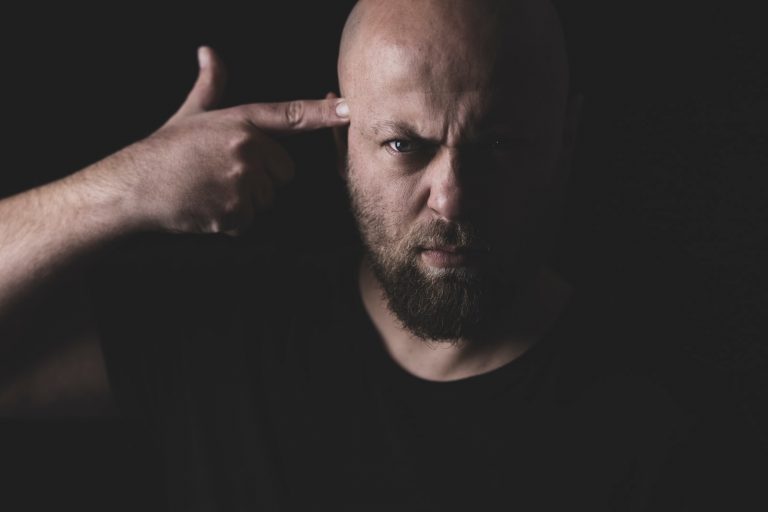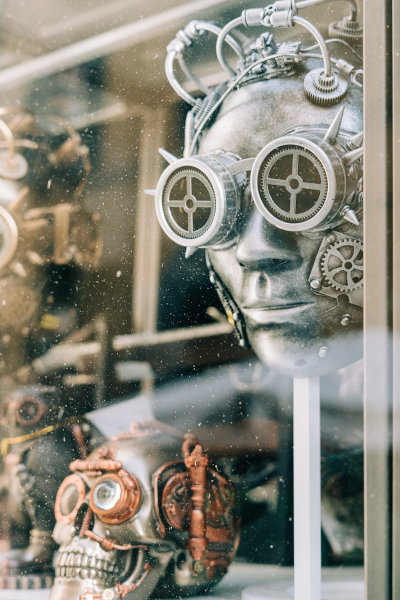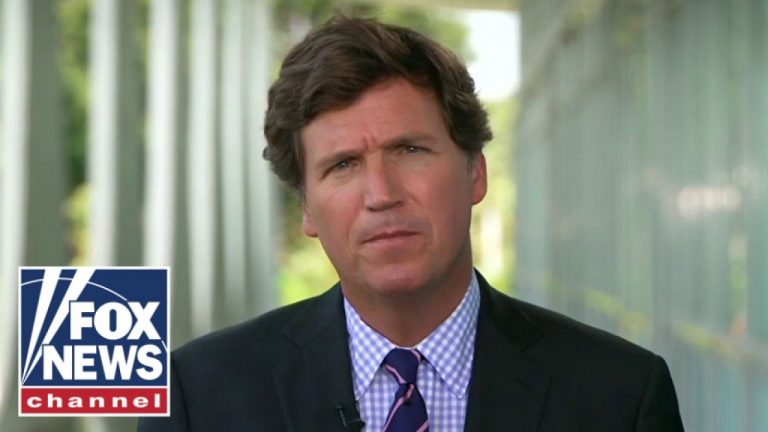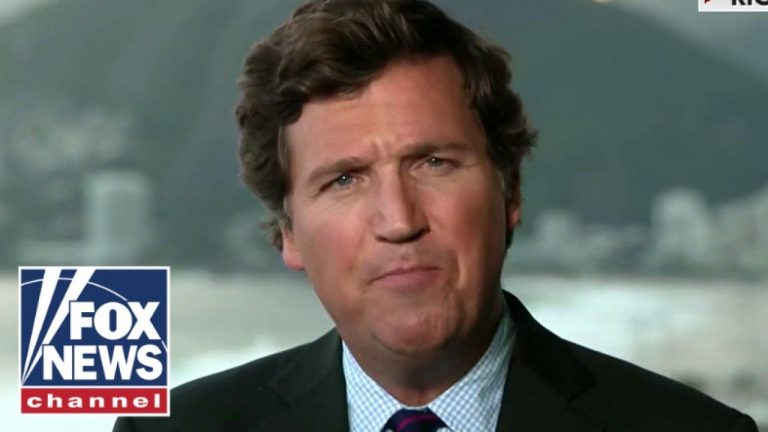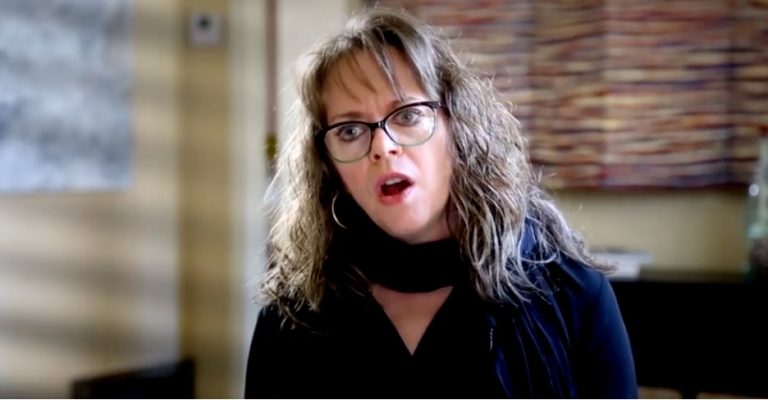- Loading stock data...
Green River Wyoming Man Shoots Others Then Commits Suicide
On Friday, June 24, 51-year-old Douglas Wolf was being searched for by the Green River police department. Wolf was a suspect in a double homicide at the Embassy Tavern bar.
According to the Green River police, Wolf committed suicide later that afternoon of a self-inflicted gunshot to himself. Green River police were trying to apprehend Wolf at an industrial building on Mesa Driver just Noth of Rock Springs, Wyoming. At the time of the incident, the building at been unoccupied for some time.
Wolf had his firearm pointed at his head as police closed in on him. For unknown reasons, Wolf decided that he would not be taken alive by Law Enforcement Officers; instead, he chose to end things causing his fatality.

Officer immediately proceeded to give life-saving measures, transporting Wolf by ambulance to the Memorial Hospital of Sweetwater County, but no avail. Wolf was pronounced deceased.
Wolf is accused of shooting two individuals at the Embassy Tavern, killing both and injuring another. The investigation is ongoing.
Faith: the Axis Upon Which the Wheel of Science Turns
[ad_1]

Can Science be True if it has no Faith?
Bill Nye, the ‘Science Guy,’ affirms that his “point of view is based on the facts of life” and not on faith-based “suppositions of life.”1 For Nye, science is the only reliable, ultimate, unstoppable, and undeniable guide to truth and is faith-free. While scientific knowledge is the power that saves, faith, for the ‘Science Guy,’ is a weakness that only blinds. Nye believes that science alone can save the world and that faith must step aside to make way for the future. This is because, says Nye, people of faith “just can’t handle the truth.”2
But is science really faith free? Max Planck, Nobel laureate in physics and pioneer of quantum theory, thinks not. As Planck explains, “Anybody who has been seriously engaged in scientific work of any kind realizes that over the entrance to the gates of the temple of science are written the words: ‘Ye must have faith.’ It is a quality which the scientist cannot dispense with.”3 For Planck, faith is the axis upon which the wheel of science turns. If one does not have faith, then one may not have science.
To illustrate Planck’s insight, consider Nye’s claim, “science is the only basis for truth.” Is this idea, in and of itself, a truly scientific claim? Not at all. This claim is not open to experimental testing or to falsification. It is a claim that goes beyond the scientific method. There would thus be no purely scientific reason for accepting the truth of the above claim. Consequently, the claim that “science is the only basis for truth” would logically have to be false if it were true. In philosophy, this is what is called a self-defeating claim. At best, the proposition would be a paradox or a mystery, but otherwise, it is just self-referentially incoherent.
Is there any such thing as the “Scientific Facts”?
The ‘Science Guy’ Bill Nye is keen on trumpeting the “undeniable facts of science” as opposed to the “mere suppositions” of faith. But can science ever know anything for certain? Consider the confidently asserted certainty of “the central dogma of molecular biology,” proclaimed by co-discoverer of the DNA double helix Francis Crick as a “fundamental biological law” in 1956. The central dogma holds that genetic information flows in only one direction—from DNA (and RNA) to proteins, and never the other way around. This idea was believed to be a biological “law of nature” that operated without exception and was the conceptual basis for the Human Genome Project of the 1990s.
In the early 2000s, however, scientists increasingly witnessed phenomena that broke the biological law. They discovered that DNA can be edited as a result of life experience and that the way DNA is read depends on the surrounding environment. In other words, “the body keeps the score.”4 With the discovery of what is today known as epigenetics, it became clear that information can be “transferred from a protein sequence back to the genome.” Consequently, explains molecular biologist Eugene Koonin, “the Central Dogma of molecular biology is invalid as an ‘absolute’ principle: transfer of information from proteins (and specifically from protein sequences) to the genome does exist.”5 The history of science is full of such cases where scientists have found exceptions to what were once viewed as exceptionless laws of Nature. How, then, can any scientific facts be undeniable?

The Scientific Limits of Science
Uncertainty in science may be the only scientific fact that we can ever be certain of. This is because science itself has discovered numerous areas where there are limits to what can be known through observation and experiment. Consider, for example, big bang cosmology—the leading scientific theory that describes the universe’s origin, structure, and development. According to the standard big bang model, derived from Einstein’s theory of general relativity and observational data, the universe began 13.7 billion years ago in a singularity—an infinitely small point in which matter was infinitely compressed. Everything that physically exists, including matter, energy, space, and time, came into existence at the big bang singularity. Thus it makes no sense to speak of physical reality or even a “time before” this point.
Science itself has discovered numerous areas where there are limits to what can be known through observation and experiment.
The existence of an initial singularity of this sort represents a fundamental limit to the observational powers of science. Any “science” that speaks of the conditions that gave rise to the singularity—such as an infinite multiverse or a quantum vacuum state—is not truly scientific because science can never test it. To assert that science will someday be able to adequately describe the conditions “before” or “beyond” the initial singularity is not a statement grounded in current science but, rather, in a philosophical faith.
While big bang cosmology reveals that there are limits to what scientists can know when studying the largest known phenomenon (the whole universe), quantum physics has also shown that there are limits to what scientists can know when studying the smallest conceivable objects (atoms and their constituent parts). Classical physics, which was the standard view of physics before 1900, said that it was possible simultaneously to know both the position and motion of a given particle with complete accuracy. While the precision of a classical physicist might, in practice, be limited only by the available technology, there was no reason in principle to expect that better technology would not eventually overcome such limits.
Quantum physics has also shown that there are limits to what scientists can know when studying the smallest conceivable objects (atoms and their constituent parts).
According to the standard view of current quantum physics, however, even perfect instruments cannot measure the location and velocity of a body simultaneously with impeccable precision. This fundamental limit on the accuracy of measurement is known as Heisenberg’s uncertainty principle. As mathematical physicist John Barrow explains, “The quantum picture of reality introduces a new form of impossibility into our picture of the world. This impossibility replaces a past belief in unrestricted experimental investigation of Nature which was based upon a misconception of what existed to be measured.”6 With quantum physics, says philosopher of science Michael Ruse, “we seem to have reached an outer point of what we can know.”7
Can Science Ever Be Certain?
The renowned philosopher of science Karl Popper showed that the most exalted status that any scientific theory can reach is “not yet falsified, despite our best efforts.”8 Scientific theories can never be verified, proven, or confirmed because an infinite number of experiments remain to be performed before all other possibilities can be ruled out. Consequently, scientific theories can only be falsified. For instance, it takes only one black swan to falsify the hypothesis that all swans are white. If a given hypothesis is to be counted as genuinely scientific, it must make testable predictions about the world that may be potentially refuted by later experimentation or possible observation.
The cornerstone of the scientific mind is its continuous openness to the possibility of being completely wrong. In order for science to function as science and make any progress in knowledge, science must always have humility as its foundation. If a given phenomenon appears to contradict our best-known science, then science must reserve judgment until scientists can find a way to investigate it adequately. Science, in principle, cannot make infallible pronouncements about what is possible. Indeed, our best theory of atomic physics (quantum mechanics) says that scientific accuracy can only deal in probabilities. Science, in both principle and practice, can never know anything for certain. Thus, while Bill Nye’s “facts of life” may exist in theory, our most advanced current scientific knowledge of them is middling at best—and always will be.
Featured Image: Unsplash.com, Kinson Leung
- Bill Nye, Undeniable: Evolution and the Science of Creation (St Martin’s Press, 2014), 244.
- Nye, Undeniable, 18.
- Max Planck, Where Is Science Going?, trans. James Vincent Murphy (New York: W. W. Norton, 1932), 214.
- Nathan P. Kellermann, “Epigenetic transmission of Holocaust trauma: can nightmares be inherited?” Isr J Psychiatry Relat Sci. 50:1 (2013).
- Eugene Koonin, “Does the Central Dogma Still Stand?” Biology Direct 7, no. 27 (2012): 1.
- John Barrow, Impossibility: The Limits of Science and the Science of Limits (Oxford: Oxford University Press, 1998), 160.
- Michael Ruse, Science and Spirituality: Making Room for Faith in the Age of Science (Cambridge: Cambridge University Press, 2010), 178
- Karl Popper, Logic of Scientific Discovery (London: Routledge, 2002), 278.
The post Faith: the Axis Upon Which the Wheel of Science Turns appeared first on aish.com.
[ad_2]
Aish.com is an online Jewish Newspaper. Aish is a news partners of Wyoming News.
Is There a Moral Code in a Virtual World?
[ad_1]
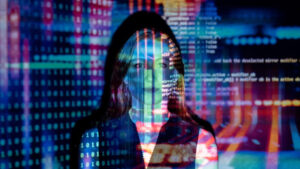
From the Olympics to biohacking, we have always been driven to push past our limits. With AI and the metaverse promising to change our engagement with reality itself, what does it really mean to be human?
A famous thought experiment in 20th-century philosophy is known as the ‘experience machine.’ Suppose you could plug yourself into a device and experience all the greatest pleasures you could ever imagine. For example, you could live the life of a Nobel prize-winner, a great artist who enjoys popular and critical admiration, a saintly rabbi, or whatever tickled your fancy. You could experience the highest of life’s highs and none of the lows with all the gain and none of the pain.
Or at least, you’d have the experience of that life. None of it would actually be happening, but, crucially, you wouldn’t be able to tell the difference.
If this all sounds familiar, you either managed to sit through at least some of your philosophy 101 classes and listened to American philosopher Robert Nozick’s ideas, or you’ve seen an obscure Hollywood film called The Matrix.
The experience machine was a way to argue that there’s more to life than pleasure. More precisely, it aims its sights on a moral principle known as ethical hedonism. Hedonism, in this sense, is more substantial than supersizing your drink and fries. It’s the idea that pleasure (and the avoidance of pain) are fundamentally at the heart of what’s good or bad.
The experience machine was a way to argue that there’s more to life than pleasure.
That may sound too shallow to be a genuine manifesto for living. But if you stop and think about it, the principle has some intuitive force. After all, when we’re faced with a difficult decision and want to do the right thing, we often try to work out what will make the most people happiest and cause the least pain. Indeed, that’s how a lot of acceptable public policy works too.
So why does the ‘experience machine’ rub many the wrong way? It’s certainly not that pleasure is something to be avoided. And we can’t really say those pleasures aren’t real. They’re real enough to us, and if we’re talking about the subjective experience of pleasure, what difference does it make if they’re really real?
So maybe the problem with subjective pleasure isn’t the pleasure so much as the subjectivity. In the ‘experience machine,’ we don’t do anything so much as experience many things. That is, we don’t owe anyone anything, no one owes us anything, and nothing we do (or seem to do) has any effect on anyone else. We are, in some fundamental sense, alone. And that seems important.
After all, any sufficiently complex animal can experience pleasure or pain. Only humans can build complex ethical networks of trust, reciprocity, love, respect, jealousy, and betrayal.
It’s hard to sustain the case that ‘fake’ pleasures aren’t actually pleasurable. But simulated ethical responsibility? That’s not being human; it’s watching a movie about the human condition.
Algorithm blues
In one sense, the experience machine transcends the limits of our finite human form. We can do anything, be anything, and not be limited by our physical circumstances. But in a more profound sense, the experience machine seriously limits our human powers. Really, it eliminates them. We don’t actually do anything, and we are not, in any true sense, human.
But what happens when technology helps us exceed our physical limits to do more in the world – and to each other?
The notion that technology extends the scope of our ethical responsibility is hardly new. Military leaders can launch missiles that cause devastation on the other side of the globe. Cyberbullying can have catastrophic consequences, and almost anyone can do it from the comfort of their own home.
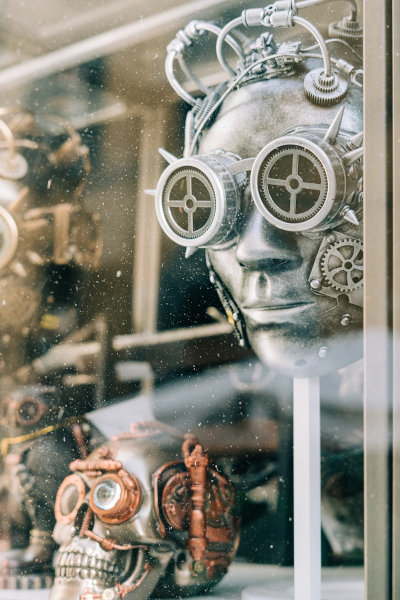 Unsplash.com, Gabriella Clare Marino
Unsplash.com, Gabriella Clare Marino
But now, we seem to be entering an even braver new world, where we don’t just arm ourselves with slick new tools and gruesome gadgets. Many of the masterminds of Silicon Valley or Tel Aviv aim for nothing less than transforming our very selves to overcome our human limits.
There’s biohacking, where we alter our physical bodies to unleash new capabilities. These initiatives range from ingesting substances that promise to enhance cognitive function to implanting microchips that can edit our genes.
Then there’s the promise of potentially living our lives in virtual reality, perhaps multiple virtual realities.
Living in a society that enjoys a good coffee, most can hardly object to substances that improve cognitive ability. But everyone should know that these new technologies present a thicket of moral problems. Should parents be able to pick and choose the genetic makeup of their children? Do virtual societies deserve the rights and protections of physical-world communities?
These will be urgent questions sooner than we might realize. But let’s not miss the ethical forest for the technological trees. I want to step back and suggest a framework for thinking about what we’re up to when we alter our bodies and minds: When does our technology make us less human rather than more human?
AI and advances in micro-processing power don’t just promise to help us reach our goals more efficiently. As we automate more of our decision-making and outsource our hard ethical choices to the algorithm, we risk becoming spectators in a life we’re no longer really in control of.
As we automate more of our decision-making and outsource our hard ethical choices to the algorithm, we risk becoming spectators in a life we’re no longer really in control of.
Put another way, one reason to keep the question ‘what do we owe each other’ in mind is, well, to try to answer it. But there’s another more subtle reason: once that question stops making sense, then perhaps we have lost what it means to be human. At that point, we become more Agent Smith than moral agents, prisoners of our techno-utopia.
We’re very fixated on issues such as whether it’s permissible to resplice our progeny’s genetic code to make them faster, stronger, smarter, and give them better comic timing. But while those are serious problems, we can’t lose sight of the fact that these attributes are just a means to achieve the ends we set for ourselves. A person with enhanced biomechanical limbs is no less a person, even if they are boundlessly more physically powerful.
The truly fundamental question that goes to the essence of being human then is what the ends we set for ourselves actually are and should we continue to set these ends at all. What if the truth is that with great responsibility comes great power? After all, what strength of will does an elephant have? Or a space rocket? No matter how powerful, these are hardly entities bearing a person’s dignity.
And once we hand over our responsibility to the algorithm…well, who can say for sure?
This is not meant as techno-pessimism. We can’t predict precisely what the future holds, not least what incredible opportunities technology will bring in the physical world as we explore virtual experiences. But we need to protect our fragile humanity to define our goals and realize values online and offline in the metaverse and in our most mundane domestic situations.
Featured image: Unsplash.com, ThisisEngineering RAEng
The post Is There a Moral Code in a Virtual World? appeared first on aish.com.
[ad_2]
Aish.com is an online Jewish Newspaper. Aish is a news partners of Wyoming News.
Tucker Carlson: Why are they so angry?
Fox News host Tucker Carlson weighs in on the Biden administration’s response to China’s ‘colonial interests’ and his administration’s ‘criminalizing of American politics’ on ‘Tucker Carlson Tonight.’
#FoxNews #Fox #Tucker
Subscribe to Fox News! https://bit.ly/2vBUvAS
Watch more Fox News Video: https://video.foxnews.com
Watch Fox News Channel Live: https://www.foxnewsgo.com/
FOX News Channel (FNC) is a 24-hour all-encompassing news service delivering breaking news as well as political and business news. The number one network in cable, FNC has been the most-watched television news channel for 18 consecutive years. According to a 2020 Brand Keys Consumer Loyalty Engagement Index report, FOX News is the top brand in the country for morning and evening news coverage. A 2019 Suffolk University poll named FOX News as the most trusted source for television news or commentary, while a 2019 Brand Keys Emotion Engagement Analysis survey found that FOX News was the most trusted cable news brand. A 2017 Gallup/Knight Foundation survey also found that among Americans who could name an objective news source, FOX News was the top-cited outlet. Owned by FOX Corporation, FNC is available in nearly 90 million homes and dominates the cable news landscape, routinely notching the top ten programs in the genre.
Watch full episodes of your favorite shows
The Five: https://video.foxnews.com/playlist/longform-the-five/
Special Report with Bret Baier: https://video.foxnews.com/playlist/longform-special-report/
Fox News Primetime: https://video.foxnews.com/playlist/on-air-fox-news-primetime/
Tucker Carlson Tonight: https://video.foxnews.com/playlist/longform-tucker-carlson-tonight/
Hannity: https://video.foxnews.com/playlist/longform-hannity/
The Ingraham Angle: https://video.foxnews.com/playlist/longform-the-ingraham-angle/
Fox News @ Night: https://video.foxnews.com/playlist/longform-fox-news-night/
Follow Fox News on Facebook: https://www.facebook.com/FoxNews/
Follow Fox News on Twitter: https://twitter.com/FoxNews/
Follow Fox News on Instagram: https://www.instagram.com/foxnews/om/
source
Brazil President Bolsonaro: My election was a miracle
Brazil President Jair Bolsonaro discusses the parallels between the politics of Brazil and America on ‘Tucker Carlson Tonight.’ #foxnews #tuckercarlsontonight
Subscribe to Fox News! https://bit.ly/2vaBUvAS
Watch more Fox News Video: https://video.foxnews.com
Watch Fox News Channel Live: https://www.foxnewsgo.com/
FOX News Channel (FNC) is a 24-hour all-encompassing news service delivering breaking news as well as political and business news. The number one network in cable, FNC has been the most-watched television news channel for 18 consecutive years. According to a 2020 Brand Keys Consumer Loyalty Engagement Index report, FOX News is the top brand in the country for morning and evening news coverage. A 2019 Suffolk University poll named FOX News as the most trusted source for television news or commentary, while a 2019 Brand Keys Emotion Engagement Analysis survey found that FOX News was the most trusted cable news brand. A 2017 Gallup/Knight Foundation survey also found that among Americans who could name an objective news source, FOX News was the top-cited outlet. Owned by FOX Corporation, FNC is available in nearly 90 million homes and dominates the cable news landscape, routinely notching the top ten programs in the genre.
Watch full episodes of your favorite shows
The Five: https://video.foxnews.com/playlist/longform-the-five/
Special Report with Bret Baier: https://video.foxnews.com/playlist/longform-special-report/
Fox News Primetime: https://video.foxnews.com/playlist/on-air-fox-news-primetime/
Tucker Carlson Tonight: https://video.foxnews.com/playlist/longform-tucker-carlson-tonight/
Hannity: https://video.foxnews.com/playlist/longform-hannity/
The Ingraham Angle: https://video.foxnews.com/playlist/longform-the-ingraham-angle/
Fox News @ Night: https://video.foxnews.com/playlist/longform-fox-news-night/
Follow Fox News on Facebook: https://www.facebook.com/FoxNews/
Follow Fox News on Twitter: https://twitter.com/FoxNews/
Follow Fox News on Instagram: https://www.instagram.com/foxnews/
source
Tucker Carlson: This hasn’t gotten a ton of coverage
Fox News host Tucker Carlson provides insight on the opposition to Brazilian President Jair Bolsonaro on ‘Tucker Carlson Tonight.’ #FoxNews #tucker
Subscribe to Fox News! https://bit.ly/2vaBUvAS
Watch more Fox News Video: https://video.foxnews.com
Watch Fox News Channel Live: https://www.foxnewsgo.com/
FOX News Channel (FNC) is a 24-hour all-encompassing news service delivering breaking news as well as political and business news. The number one network in cable, FNC has been the most-watched television news channel for 18 consecutive years. According to a 2020 Brand Keys Consumer Loyalty Engagement Index report, FOX News is the top brand in the country for morning and evening news coverage. A 2019 Suffolk University poll named FOX News as the most trusted source for television news or commentary, while a 2019 Brand Keys Emotion Engagement Analysis survey found that FOX News was the most trusted cable news brand. A 2017 Gallup/Knight Foundation survey also found that among Americans who could name an objective news source, FOX News was the top-cited outlet. Owned by FOX Corporation, FNC is available in nearly 90 million homes and dominates the cable news landscape, routinely notching the top ten programs in the genre.
Watch full episodes of your favorite shows
The Five: https://video.foxnews.com/playlist/longform-the-five/
Special Report with Bret Baier: https://video.foxnews.com/playlist/longform-special-report/
Fox News Primetime: https://video.foxnews.com/playlist/on-air-fox-news-primetime/
Tucker Carlson Tonight: https://video.foxnews.com/playlist/longform-tucker-carlson-tonight/
Hannity: https://video.foxnews.com/playlist/longform-hannity/
The Ingraham Angle: https://video.foxnews.com/playlist/longform-the-ingraham-angle/
Fox News @ Night: https://video.foxnews.com/playlist/longform-fox-news-night/
Follow Fox News on Facebook: https://www.facebook.com/FoxNews/
Follow Fox News on Twitter: https://twitter.com/FoxNews/
Follow Fox News on Instagram: https://www.instagram.com/foxnews/
source
Gov. Abbott: This will end with a new president
Texas Gov. Greg Abbott on holding the Biden administration accountable for ‘lawlessness’ along the U.S.-Mexico border. #FoxNews
Subscribe to Fox News! https://bit.ly/2vaBUvAS
Watch more Fox News Video: https://video.foxnews.com
Watch Fox News Channel Live: https://www.foxnewsgo.com/
FOX News Channel (FNC) is a 24-hour all-encompassing news service delivering breaking news as well as political and business news. The number one network in cable, FNC has been the most-watched television news channel for 18 consecutive years. According to a 2020 Brand Keys Consumer Loyalty Engagement Index report, FOX News is the top brand in the country for morning and evening news coverage. A 2019 Suffolk University poll named FOX News as the most trusted source for television news or commentary, while a 2019 Brand Keys Emotion Engagement Analysis survey found that FOX News was the most trusted cable news brand. A 2017 Gallup/Knight Foundation survey also found that among Americans who could name an objective news source, FOX News was the top-cited outlet. Owned by FOX Corporation, FNC is available in nearly 90 million homes and dominates the cable news landscape, routinely notching the top ten programs in the genre.
Watch full episodes of your favorite shows
The Five: https://video.foxnews.com/playlist/longform-the-five/
Special Report with Bret Baier: https://video.foxnews.com/playlist/longform-special-report/
Fox News Primetime: https://video.foxnews.com/playlist/on-air-fox-news-primetime/
Tucker Carlson Tonight: https://video.foxnews.com/playlist/longform-tucker-carlson-tonight/
Hannity: https://video.foxnews.com/playlist/longform-hannity/
The Ingraham Angle: https://video.foxnews.com/playlist/longform-the-ingraham-angle/
Fox News @ Night: https://video.foxnews.com/playlist/longform-fox-news-night/
Follow Fox News on Facebook: https://www.facebook.com/FoxNews/
Follow Fox News on Twitter: https://twitter.com/FoxNews/
Follow Fox News on Instagram: https://www.instagram.com/foxnews/
source
Lee Ann Reiter Running For Cody City Council Ward 3 Seat
Photo courtesy of Lee Ann Reiter Ward 3 Cody City Council Candidate
Cody Wyoming resident Lee Ann Reiter has decided to put her hat in the political ring and run for Cody City Council in Ward 3. Lee Ann Reiter has lived in Wyoming since about 1981 and has been very active in the Cody community ever since. Lee Ann Reiter got her engineering degree from Penn State University and has worked in the oil industry for 40 years, definitely putting in her time.
Reiter says she is retired, but if one looks at her daily schedule she is far from being retired as she is a substitute teacher according to the Cody School District Administration Office.
Lee Ann Reiter believes in having strong growth of the community by local people, not those who move from out of state to Cody. People from out of state usually bring with them the garbage politics from the big city. In Cody Wyoming Reiter wants to help “preserve the western lifestyle. That is who we are as a community.” Reiter stated to the Wyoming News reporter in an interview, ” I embrace people moving into Cody, but Cody needs to be able to preserve the Cody Wyoming western lifestyle way of life that is just who we are as a community.”
Some of the topics that Lee Ann Reiter, candidate for City Council Ward 3, wants to focus on are the issues and concerns that her Ward 3 constituents may be concerned about or have questions about. Lee Ann Reiter wants to have an open-door policy to enable great communication back and forth with her Ward 3 constituents.
Now It’s My Turn – So it Never Happens Again – The Lisa Hanson Story (Video)
[ad_1]
“She was even told that if she made reference to the U.S. Constitution in court that she would be held in contempt.” If you have not yet watched the documentary on the story of Lisa Hanson, here it is. Lisa Hanson suffered at the hands of a tyrannical Minnesota Governor Tim Walz (from Nebraska), as …
[ad_2]
This article was originally published on https://sonsoflibertymedia.com/ on 2022-07-02 09:43:24



